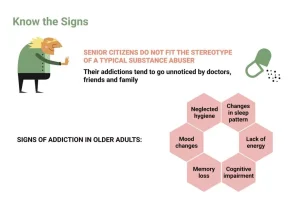
Medically assisted detox in a rehabilitation facility is highly recommended for individuals who wish to stop drinking. These treatment programs can help reduce the risks of DTs and improve your chance of prolonged recovery. While alcohol shakes are fairly common, only 5-10% of heavy drinkers experience DTs. Relapse can be a part of the recovery journey, but with a solid prevention plan, it’s less likely. This plan should identify triggers, outline strategies to manage cravings, and include a support system you can rely on. Whether it’s a trusted friend, family member, or a professional counselor, having someone to turn to can make all the difference.
- It is believed to be caused by the toxic effects alcohol has on the brain plus nutritional deficiencies (particularly of the B vitamin thiamine) common in alcoholism.
- Serious alcohol withdrawal symptoms can begin 36–72 hours after stopping drinking, with around the 48-hour mark being the most common peak for symptoms.
- The symptoms of alcohol withdrawal can start as early as a few hours after your last drink and may last for weeks, with the intensity and duration varying significantly from person to person.
- They are usually a symptom of alcohol withdrawal, but can be a result of other alcohol-related issues as well.
- Delirium tremens is mainly characterized by tremors, hallucinations, disorientation, confusion, and increased heart rate/breathing rate/blood pressure.
Why Does Alcohol Withdrawal Cause Shakes?
That said, stopping alcohol when your body has become reliant on it to function normally can certainly feel like a shock to your system. Whilst initial symptoms are similar, hangover symptoms typically stop after 24 hours after your last drink, whereas signs and symptoms of withdrawal may last for several weeks. If you or a loved one is struggling with alcohol cessation, seek professional medical advice. Symptoms from ceasing moderate drinking occur from hours after the last alcoholic drink.
Factors That Influence the Alcohol Withdrawal Timeline
If left untreated, withdrawal symptoms can worsen significantly and become dangerous. Serious alcohol withdrawal symptoms can begin 36–72 hours after stopping drinking, with around the 48-hour mark being the most common peak for symptoms. The most feared symptom of alcohol withdrawal are the shakes and delirium tremens. When a person has become addicted to alcohol, drinking becomes more important than family, friends, jobs, and health. When drinking becomes seemingly impossible to quit, hope may be right around the corner.
Detox In Hospital
These range from medication to managing symptoms with the help of healthcare professionals to comprehensive care in a specialized facility. Professional treatment providers play a crucial role in ensuring your safety and comfort during withdrawal. They offer both medical care and emotional support, which are essential in navigating this challenging phase. The early stage, which can start within hours of your last drink, often includes symptoms like anxiety, shakes, and insomnia. As the withdrawal progresses, these symptoms may peak – often within the first 24 to 48 hours – and then will begin to diminish over the following days. Regular and heavy consumption of alcohol alters the way your brain functions.

National Library of Medicine, around 2% of individuals with alcohol use disorder also experience Delirium Tremens (DTs) during alcohol withdrawal. Delirium Tremens is a severe form of alcohol withdrawal syndrome that causes body tremors, high blood pressure, hallucinations, paranoia, fever, and alcohol withdrawal seizures. how to stop tremors from alcohol DTs is a life-threatening condition that requires immediate medical attention. Some people can develop a severe form of alcohol withdrawal known as delirium tremens, or DTs, that can cause a severe shaking or shivering. Other symptoms of DTs include hallucinations, agitation, high blood pressure, fever and even seizures.
Withdrawal Symptoms
On average, an alcoholic who doesn’t stop drinking can expect to decrease his or her life expectancy by at least 15 years. In the below video, our medical director, Dr. Calarco, explains how alcohol can cause shakes and tremors. This type of tremor typically involves rhythmic shaking in the hands, trouble writing or drawing, https://ecosoberhouse.com/article/does-alcohol-weaken-our-immune-system/ difficulty using utensils, a shaky voice, and more symptoms. Plus, alcohol can still be detected in your system, either as alcohol itself or as the byproducts of booze. This means you might still fail a breathalyser test (which shows clear results when the blood alcohol concentration drops below 0.01%) several hours later.
Tremors Caused by Liver Disease

‘Even if one drink per hour is metabolised, multiple drinks can still pose a significant risk due to residual impairment,’ Ian adds. ‘One standard drink is typically defined as containing approximately 10 grams of pure alcohol,’ he explains. According to Ian, he liver breaks down alcohol into the other compounds at around one drink per hour. While everyone’s reaction is different, the human body goes through a number of processes to clear booze out, mainly involving metabolism in the liver.
- Drugs.com provides accurate and independent information on more than 24,000 prescription drugs, over-the-counter medicines and natural products.
- This plan should identify triggers, outline strategies to manage cravings, and include a support system you can rely on.
- Unlike simple alcohol shakes, DTs involve hallucinations, confusion, rapid heartbeat, high fever, and seizures.
- However, if you have a milder addiction, you could be eligible for an at-home detox.
- They keep a bottle of vodka under the bed, hidden in drawers, the garage, or any other place a bottle could be kept.
In this stage, withdrawal symptoms may have already peaked or will peak and then begin to resolve. Stage two begins 12–24 hours after your last drink and withdrawal symptoms can intensify during this stage. The end of this stage will be the peak of withdrawal symptoms for those with mild dependence. Those with severe dependence, however, will face continued worsening of symptoms. Patients will meet with medical professionals to assess the right treatment for alcohol addiction and create a treatment timeline.
Outpatient Treatment

Uncontrolled shaking of the hands or other parts of the body is common among those suffering from an alcohol addiction. Most of the time, an individual with a drinking problem who shakes is exhibiting signs of alcohol withdrawal, but there are other reasons why an alcoholic might shake. For someone with moderate-to-severe alcohol withdrawal symptoms, inpatient treatment will likely be the best option. Inpatient treatment is when you are treated at a hospital or another professional setting that specifically handles alcohol withdrawal. When a person goes through alcohol withdrawal, they may experience something called alcohol tremors, also known as alcohol shakes.
- Sometimes, even regular drinkers can feel like they’ve been drinking too much.
- When drinking becomes seemingly impossible to quit, hope may be right around the corner.
- Your body responds to the side effects of alcohol by increasing activity in the central nervous system.
- Moderate symptoms include breathing difficulties, hypertension, rapid heartbeat, profuse sweating, irritability, fever, and confusion.
- Some people may not have any symptoms this early in the detox process.
Deixe um comentário